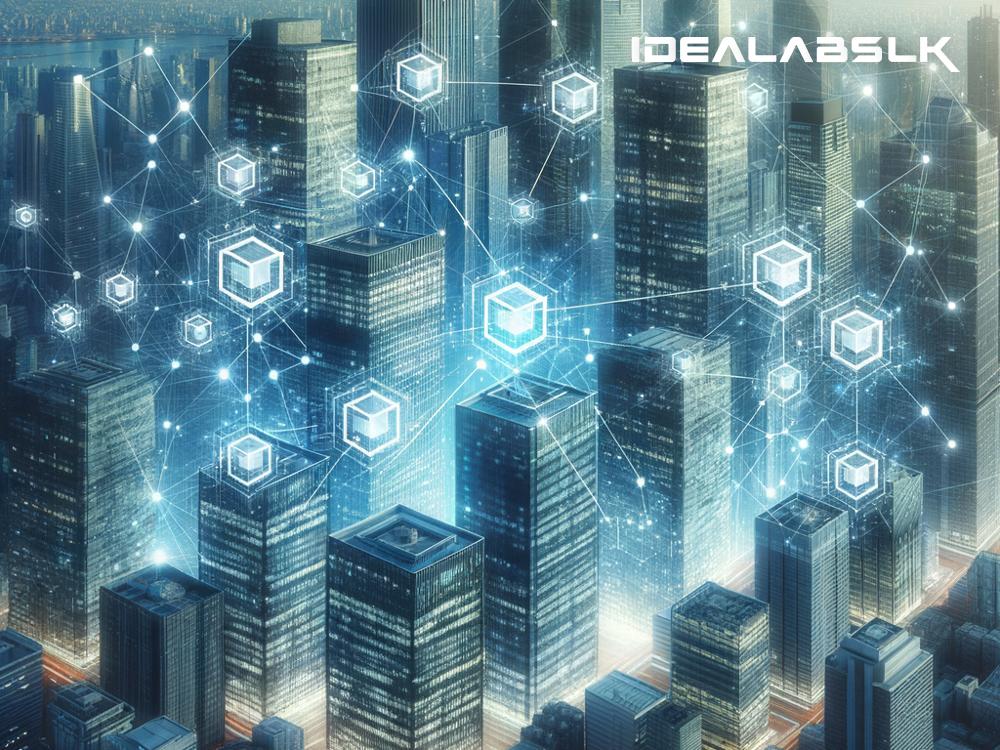Unlocking the Future: The Role of Blockchain in Real Estate Asset Transfers
Imagine you're playing a game of Monopoly, but in this version, every property transaction is secure, transparent, and almost instantaneous. No more lengthy paperwork, no fear of fraud, and no third-party interference. Sounds ideal, right? This is not a far-off reality in the world of real estate, thanks to blockchain technology.
What is Blockchain?
To put it simply, blockchain is a digital ledger that securely records transactions across many computers. Once recorded, the information cannot be altered without altering all subsequent blocks and the consensus of the network. This makes it extremely secure and trustworthy. Initially famed for powering cryptocurrencies like Bitcoin, blockchain is now revolutionizing various industries, notably real estate.
The Traditional Real Estate Game
Traditionally, buying or selling property is time-consuming and fraught with challenges. There are piles of paperwork to navigate, the risk of fraud, and a slew of middlemen, including real estate agents, lawyers, and banks. Each step adds time and cost to the transaction.
Blockchain Enters the Real Estate Scene
Blockchain technology introduces a new way of handling asset transfers, promising to make them faster, more secure, and less expensive. Here's how it revolutionizes real estate:
-
Smart Contracts: These are self-executing contracts with the agreement directly written into lines of code. They automatically enforce and execute the terms of the agreement when conditions are met. In real estate, this could mean automatically transferring ownership once payment is received, significantly speeding up the process.
-
Transparency: Blockchain's ledger is open for viewing, meaning all parties can track the progress of the transaction and verify information. This transparency builds trust among participants and reduces the risk of fraud.
-
Decentralization: Without the need for intermediaries, transactions on blockchain are peer-to-peer. This not only reduces costs by cutting out middlemen fees but also accelerates the transaction process.
-
Security: Manipulating blockchain records is nearly impossible due to its cryptographic protection and distributed nature. This significantly lowers the risk of fraudulent activities.
-
Tokenization: This refers to converting rights to an asset into a digital token on the blockchain. Imagine owning a "piece" of a property through a digital token, making real estate investment more accessible to many by reducing the entry price.
Real-World Applications
Companies and governments around the world are beginning to explore and implement blockchain in real estate asset transfers. For example, certain countries are experimenting with storing land registries on a blockchain. This provides a clear, immutable history of ownership and changes to the property.
On the commercial front, blockchain platforms are emerging that simplify the buying and selling process, offering services like property search, due diligence, and secure transactions. These platforms provide a one-stop-shop for real estate transactions executed through smart contracts, making them faster and less expensive.
Challenges Ahead
Despite its potential, blockchain in real estate is still in its infancy. Several hurdles stand in the way of widespread adoption:
-
Regulatory Challenges: Real estate is heavily regulated, and integrating blockchain requires navigating a complex web of regulations that vary from one jurisdiction to another.
-
Technology Adoption: The real estate industry is traditionally slow to adopt new technologies. Shifting to blockchain-based systems requires a significant change in mindset and operations.
-
Interoperability: For blockchain to truly revolutionize real estate, different blockchain platforms need to be able to work together seamlessly—a challenge known as interoperability.
Looking Forward
As we overcome these challenges, the future of real estate transactions looks promising with blockchain technology. With increased efficiency, lower costs, and enhanced security, it's not hard to imagine a day when buying a house could be as simple as clicking a button, instantly transferring ownership and funds securely.
Blockchain isn't just a technical innovation; it's a new way of thinking about transactions, ownership, and trust. As we continue to unlock its potential, real estate transactions might just become another thing we do online, as easy as sending an email or streaming a movie.
In essence, blockchain is more than just a buzzword in the tech world; it's a transformative force that could redefine our concept of asset transfers, making the real estate market more accessible, secure, and efficient for everyone involved. In doing so, it promises to turn the game of property investment and ownership into a realm where everyone, not just the top players, can win.

